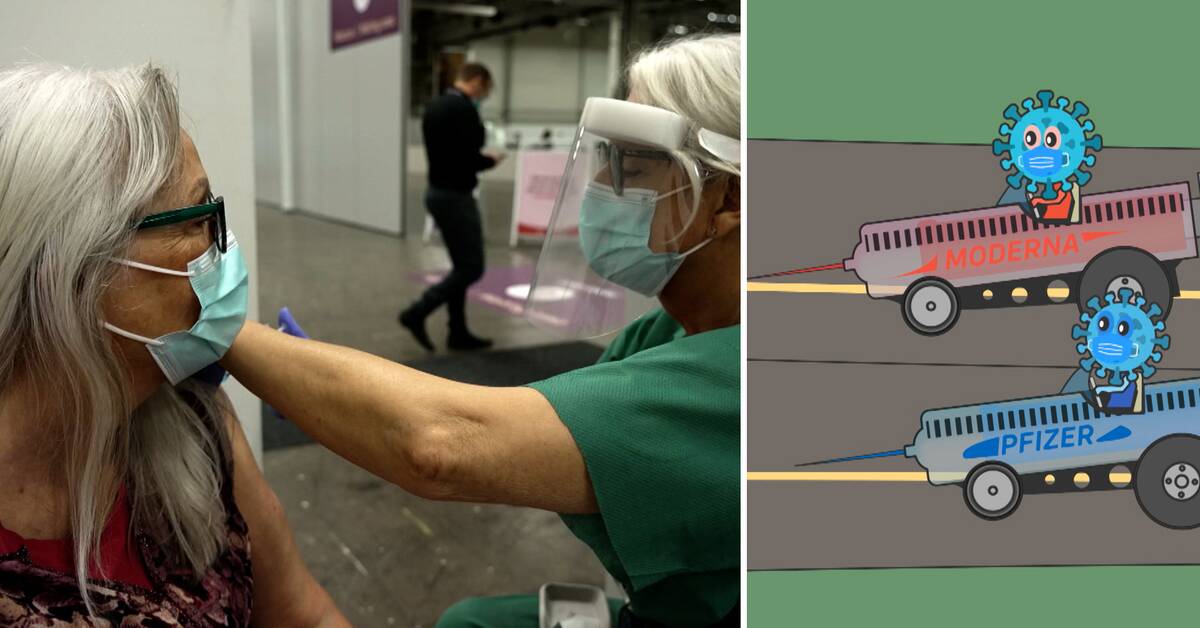The major vaccine manufacturers Moderna and Pfizer-BioNTech are currently working on updating their covid vaccines so that they can better protect against omicron and new unknown variants.
But the companies look to choose different strategies going forward, which means that there may be greater differences between the two mRNA vaccines this autumn.
Facing choice of route
After omicron took over, the vaccine's protective effect has diminished.
Although a third dose provides a high level of protection against serious illness in the first three months, the protection against infection has fallen sharply.
- It is clearly worrying and that is the reason why we are looking at developing an unicron-specific vaccine, says Pfizer's Swedish vaccine manager Andreas Palmborg.
Both Moderna and Pfizer-BioNTech are in the race to quickly produce new updated vaccine candidates this autumn when the spread of infection risks picking up speed again.
And both companies are faced with a choice of path.
Either they invest in developing a new so-called monovalent vaccine, which is based on only one virus variant, for example omicron.
Or the companies are investing in a multivalent vaccine that is based on two or more virus variants.
More virus variants in Moderna's vaccine
Pfizer has launched tests and is now investigating whether their omicron-specific vaccine works better than the current one, which is based on the original Wuhan virus.
Moderna has also tested an omicron-specific vaccine, but has now chosen to go the other way.
In August, they hope to have an approved vaccine that contains the drawings for both the omicron and Wuhan variants.
- We believe that the multivalent approach is better than a monovalent vaccine because it provides broader protection against future virus mutations, says Modern's European Director Dan Staner to SVT.
In January, the International Federation of Pharmaceutical Authorities (ICMRA) held a meeting in which pharmaceutical companies were encouraged to develop vaccines with more virus variants.
- The experts seem to agree quite a bit that you get a broader protection precisely because you expose the body to something it has already seen before, while throwing in omicrons to give that protection as well, says Sweden's vaccine coordinator Richard Bergström.

